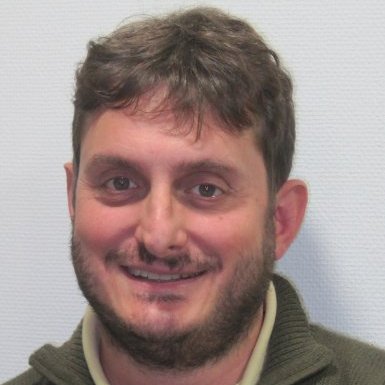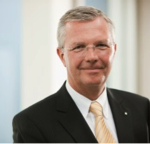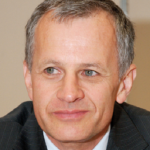
Sergio Barbarino
Chair of Alice. Research Fellow, Procter & Gamble
Nik Delmeire
Vice Chair of ALICE, European Inland Waterway Transport Platform

Alan Waller
Chairman, ELUPEG
Jaco VoorspuilMarinus
Senior Manager Transport & Logistics Glogal Responsibility, GS1
Charlotte Migne
Vice Chair of Alice
Group Sustainable development Director, FM Logistic
Burcu Menemcioglu Ozturk
Information Technologies Project Manager, Borusan Lojistik
Tomás de la Vega
Managing Director, Logistop
Nicolette van der Jagt
Director General, CLECAT

Ralf-Charley Schultze
President, UIRR
John Ingram
Relationship Manager, Department for Transport & Transport Systems Catapult

Herman Journée
Chairman, ECO SLC
Juan Manuel Díez
Head of Planning and Management Control, Port Authority of Valencia
Laurent Desprez
Executive Director, Euralogistics
Pedro Ballester
CEO, Logifruit
Marcel Huschebeck
Portfolio Manager Logistics Research, PTV Group

Thorsten Hülsman
CEO, EffizienzCluster

Dr. Michael Ten Hompel
Managing Director, Fraunhofer-Institute of Material Flow and Logistics IML
Dr. Angelos Amditis
Research Director, ICCS

Franz Staberhofer
Chairman, Verein Netzwerk Logistik & Logistikum
Prof. Dr. Susana Val
Director, Zaragoza Logistics Center
Eric Ballot
Professor & Director Centre de Gestion Scientifique, Mines ParisTech
Francesca Ruta
Posteitaliane
Responsibilities:
The Steering Group is industry led and it is empowered by the Plenary to decide the strategy, work programs and the ETP’s main areas of activity of ALICE-ETP. It may decide on the creation of Task Forces to address specific activities informing on this to the Plenary. The Steering Group proposes research and innovation challenges to the Commission as input for the HORIZON 2020. The Plenary will be informed on the decisions made by the Steering Group.
Working rules:
The Steering Group meets 2-3 times per year or otherwise as required by the Chair of the Plenary and the Steering Group. Steering Group decisions will be taken by consensus whenever possible. Each Member of the Steering Group has one vote and decisions will be taken on the basis of a two thirds majority of votes in case consensus cannot be achieved.
Composition:
Steering Group members need to be decision-makers from Industry (associations, big companies and SMEs), Universities or Research institutions, and three representatives from the Mirror Group. The Steering Group consists of not more than 25% of the members and with a Maximum of 30 members including the representatives of the Mirror Group.
The industry representatives must constitute at least 2/3 of the total Steering Group members. Shippers and logistics service providers are the primary group of companies addressed. They should come from the following areas, among others:
• Shippers:
- Manufacturing and base industry.
- Wholesale and retail companies.
• Logistics service providers.
• Transport companies.
• Ports and terminal operators.
• Support industry (finance, law, ICT, equipment/vehicle/vessel manufacturers, infrastructure construction companies)
It is desirable that Steering Group members are also active in the governing bodies of other European Logistics-related Associations and Platforms including: ACARE, CEFIC, CLECAT, CSCMP, EALTH, ECR, ECSA, EFFRA, ELA, ELUPEG, ERTICO, ERTRAC, ERRAC, ESPO, EUCAR, ESC, FEPORT, F&L, GS1, IRU, MANUFUTURE, WATERBORNE, SCC, UIC, UIRR, UNIFE.
Participation:
The election of an ETP member as part of the Steering Group can be proposed by any ETP member including self-nomination. The Plenary members will approve it by at least two-third of positive votes. They will be appointed for a 2-year period and can be reappointed by at least a two-third positive votes of the Plenary members.
If because of this process, the number of Steering Group members excess the maximum in each category, the Steering Group will be composed of those candidate with higher number of positive votes














